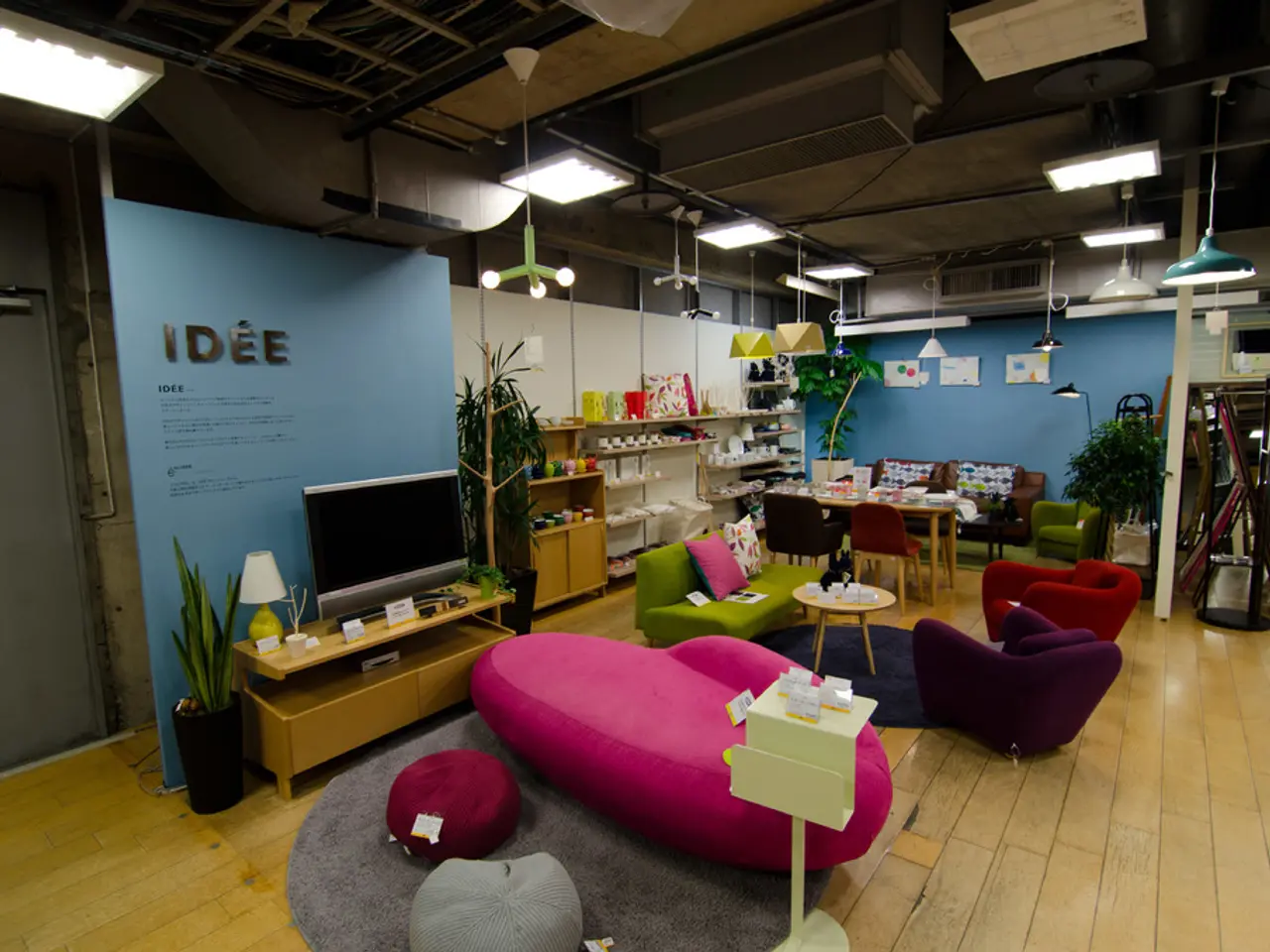AI Assistants Now Merging with Smart Home Gadgets
In the rapidly evolving world of technology, AI assistants like Amazon Alexa, Google Assistant, Apple Siri, and Samsung Bixby are revolutionising smart home automation. These personal digital helpers offer seamless control over a multitude of smart devices, automate routines, and provide personalised experiences.
## Seamless Control and Automation
These AI assistants allow users to control a wide range of smart home devices using voice commands, making it easier to manage lighting, thermostats, security systems, and more. For instance, Alexa excels in smart home control, particularly for households with diverse devices, while Siri offers seamless integration within the Apple ecosystem. Bixby integrates well with Samsung devices, and Google Assistant is strong in multitasking and provides detailed answers, leveraging Google Search capabilities.
## Automation Routines
AI assistants can automate tasks based on triggers like time, location, or specific events. For example, Bixby Routines can automate tasks like launching music when connecting to a car's Bluetooth. These routines can significantly improve daily life by reducing the need for manual intervention.
## Personalisation and Insights
AI assistants can enhance customer experiences and provide personalised insights, which can be beneficial for marketing and customer service. For instance, AI-powered smart kitchen appliances can suggest meal plans based on user preferences and food available in the refrigerator.
## Challenges
Despite their benefits, AI assistants face several challenges. Privacy concerns arise as these assistants collect data and rely on cloud processing, with varying levels of on-device processing. Voice recognition limitations, such as accents, background noise, and vague commands, can sometimes confuse the assistants. Interoperability, or the ability to work across different platforms, can also be limited.
## Future Prospects
The future of AI assistants in smart home automation looks promising. Ongoing improvements in AI technology will enhance the assistants' ability to understand and respond to user needs more effectively. Integration with emerging technologies like augmented reality, more sophisticated robots, and advanced IoT devices will expand the capabilities of smart home automation.
The smart home market is expected to grow significantly, driven by the increasing use of AI-powered digital assistants, which will further drive the demand for smart devices and automation solutions. As AI technology continues to evolve, these assistants are likely to become more sophisticated and integrated into daily life.
In conclusion, AI assistants like Alexa, Google Assistant, Siri, and Bixby are transforming smart home automation by providing seamless control and automation, but they also face challenges related to privacy and interoperability. As AI technology continues to advance, these assistants are likely to become more sophisticated and integrated into our daily lives, making home automation more accessible and personalised than ever before.
[1] Source: TechRadar (https://www.techradar.com/) [2] Source: Statista (https://www.statista.com/) [3] Source: Samsung (https://www.samsung.com/) [4] Source: Forbes (https://www.forbes.com/)
- Technology advancements in AI assistants, such as Amazon Alexa, Google Assistant, Apple Siri, and Samsung Bixby, are not only revolutionizing smart home devices, but also the entire lifestyle by offering seamless control over entertainment systems, making health management easier through connected fitness devices, and providing personalized recommendations for daily routines.
- The entertainment industry is drastically changing with the integration of AI technology, as these digital assistants can now assist in playing favorite songs, streaming movies, and even recommending new shows based on user preferences, thus merging technology and entertainment perfectly.
- Beyond home automation and entertainment, AI assistants like Bixby, Siri, and Google Assistant also play a crucial role in healthcare management, offering personalized lifestyle and wellness advice, monitoring vital signs, and reminding users about medication schedules, paving the way for a technology-driven, health-focused future.




